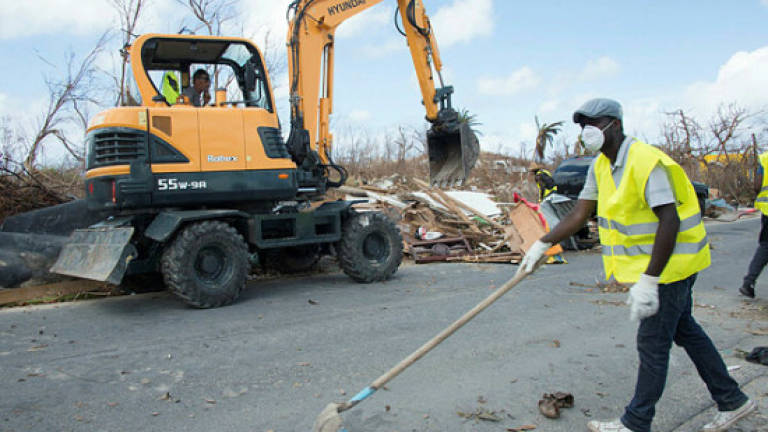Hurricane-hit St Martin takes first steps to rebuild

MARIGOT: Almost two weeks after Hurricane Irma slammed into St Martin, killing 15 people, the French–Dutch Caribbean island has begun to take small steps toward reconstruction.
Out on the roads, soldiers and volunteers work side by side to clear debris clogging the streets, stocking branches, metal sheets and other rubble in long piles along the embankment.
In the particularly hard–hit town of Grand Case, near the island's northern tip, firefighters are busy repairing wrecked roofs, while a few miles away, soldiers appraise the damage to a school.
Government officials want the school to open for classes on Tuesday, but whether it will be able to is another matter.
"We are still in an emergency situation but rebuilding is also in the back of our minds," Guadeloupe's governor Eric Maire said during a visit to the island. "We are beginning to get some administrative services back online".
Maire said more public officials would be sent to the island, home to some 35,000 people, to help with administrative and other tasks.
But already, signs that rebuilding is now a primary focus of the French government are everywhere.
Bathing in the ocean
Petrol stations that once held empty tanks are now again open for business.
Utility workers have fanned across the island to get electricity back to every household. By Sunday, a third of homes already had their power back on, Maire said, and the electricity company said the rest would have it back within a week, either through the main electricity grid or via a generator.
And those residents and tourists who had requested to evacuate have been able to leave, thanks to now–operational air and sea networks.
"Not everything has been restored," Maire cautioned. "Our main problem is to re–establish access to running water".
Except for the few lucky ones with water tanks, nearly all residents have been unable to take a shower, do dishes or use their toilets.
The island's desalination plant — the only way to produce drinking water in the absence of freshwater — is out of commission until at least next week, and will run at just 20% capacity once it has been repaired, said comptroller general Patrick Bautheac.
Bautheac expects the plant to be fully operational by early October, though he cautioned that much of the plant's equipment had deteriorated over the years.
"We wash ourselves with bottled water but it's not very economical," a young soldier sent from Martinique told AFP. "Or we wash in the ocean".
'Long–term endeavour'
In the meantime, the island will have access to a mobile plant being brought by the French utility company Veolia. On its way from Spain, it should be up and running by the middle of next week, according to Bautheac.
Once it is functioning, the island will be able to produce up to 1,700 cubic metres (374,000 gallons) of water a day, Bautheac said — though peak consumption for the island is about 5,000 cubic metres a day.
"It is a long–term endeavour," Bautheac said.
In the hurricane's aftermath, authorities have been distributing daily water at appointed hours of the day to help with the problem.
Residents either queue at fixed locations or meet aid trucks that crisscross the island to distribute food supplies and water.
"It's a matter of reaching people where they are," Maire said. "We are going to put in place local teams with the Red Cross to share information and also gather what residents need".
On the security front, the large presence of security forces seems to have dealt with the early reports of looting and lawlessness — and has reassured residents.
The government and humanitarian groups may also open school halls and temporary shelters to those who lost their homes. — AFP